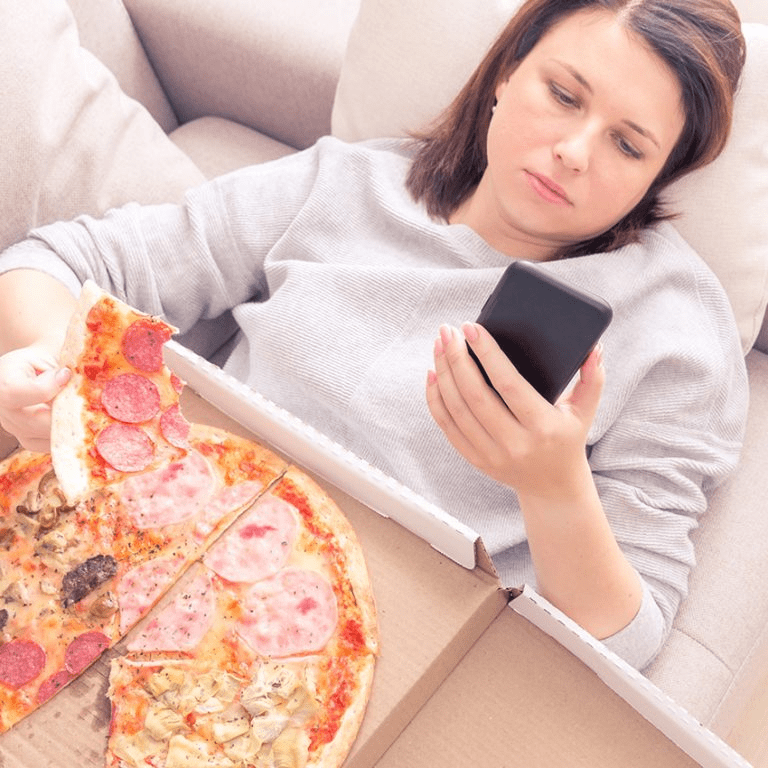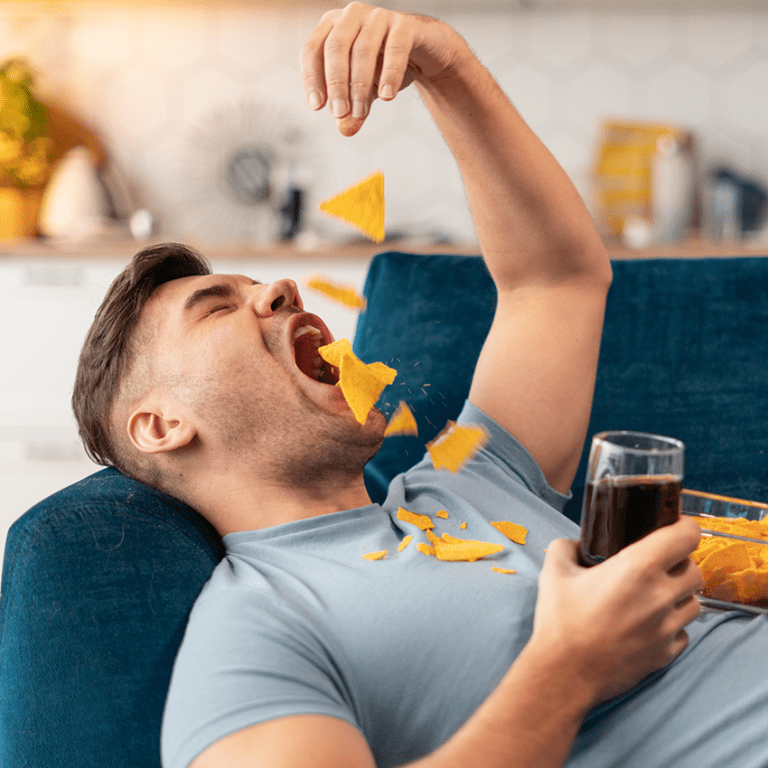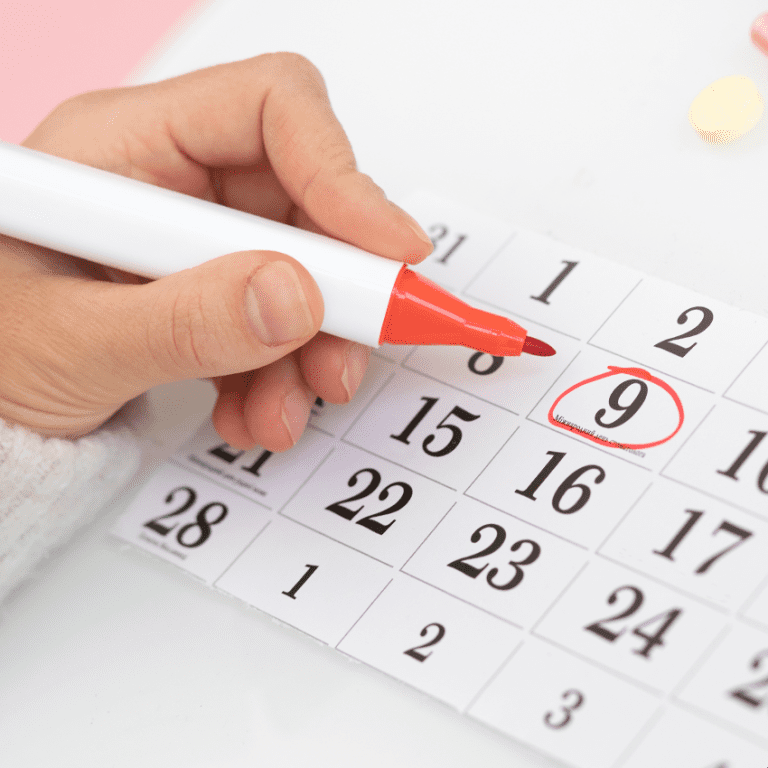


In the morning, you quickly fill up with your breakfast or eat nothing at all. Then, at lunch, you eat right at your desc while scrolling through social media. Finally, in the evening, you come home exhausted and eat something unmentionable with a favorite soap opera.
Of course, that may be an overstatement, and your day doesn’t always look like that. But how does your body know it’s time to eat? ⠀
If you eat in a hurry or between another routine, your body just has no time to prepare or to give your brain the signal that it’s full in time.⠀
So you eat more food than you really need.

Our body always needs essential fats, complex carbohydrates, high-quality proteins, and amino acids.
When it receives these important nutrients, it has more reasons to tell you: “I’m full. You can stop eating now.”
If the food lacks such nutrients, the craving for food continues.⠀

E.g., You eat a whole pizza because you feel confused or upset.
Food is not only a great symbolic substitute. Many foods, especially carbohydrates, increase the production of serotonin and tryptophan, allowing you to experience a desired, but temporary, sense of peacefulness.⠀
In this case, the body reacts to the food as if it was medicine, literally interchanging the biochemical responses.
It’s okay to get pleasure through food from time to time. But excessing food to regulate mood is a dangerous habit.

Overeating can be caused by breaking your diet a little, such as eating a cookie or some other cheat meal. Driven by guilt or by a feeling that there is nothing left to lose, you just start to eat everything you have refused for a long time.⠀

By saying that some diet starts tomorrow, we usually tell nothing but that we can eat whatever we want today.
And on the eve of the new diet, you will tend to overeat to compensate for future restrictions inevitably.
Was this helpful?
Please note that HEALBE GoBe is not responsible for any content that purports to give medical advice or advice regarding fitness training, exercise, or diet. Always seek the advice of a physician or other qualified health provider with any questions you may have regarding a medical condition and prior to starting a diet or physical fitness program.